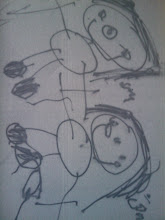http://www.ccel.org/ccel/guyon/auto.iii.x.html
From the autobiography of Madam Guyon, the bit that spoke to me I have made bold
"I now quitted all company, bade farewell forever to all plays and diversions, dancing, unprofitable walks and parties of pleasure. For two years I had left off dressing my hair. It became me, and my husband approved it.
My only pleasure now was to steal some moments to be alone with Thee, O thou who art my only Love! All other pleasure was a pain to me. I lost not Thy presence, which was given me by a continual infusion, not as I had imagined, by the efforts of the head, or by force of thought in meditating on God, but in the will, where I tasted with unutterable sweetness the enjoyment of the beloved object. In a happy experience I knew that that the soul was created to enjoy its God.
The union of the will subjects the soul to God, conforms it to all His pleasure, causes self-will gradually to die. Lastly in drawing with it the other powers, by means of the charity with which it is filled. It causes them gradually to be reunited in the Center, and lost there as to their own nature and operations.
This loss is called the annihilation of the powers. Although in themselves they still subsist, yet they seem annihilated to us, in proportion as charity fills and inflames; it becomes so strong, as by degrees to surmount all the activities of the will of man, subjecting it to that of God. When the soul is docile, and leaves itself to be purified, and emptied of all that which it has of its own, opposite to the will of God, it finds itself by little and little, detached from every emotion of its own, and placed in a holy indifference, wishing nothing but what God does and wills. This never can be effected by the activity of our own will, even though it were employed in continual acts of resignation. These though very virtuous, are so far one’s own actions and cause the will to subsist in a multiplicity, in a kind of separate distinction or dissimilitude from God.
When the will of the creature entirely submits to that of the Creator, suffering freely and voluntarily and yielding only a concurrence to the divine will (which is its absolute submission) suffering itself to be totally surmounted and destroyed, by the operations of love; this absorbs the will into self, consummates it in that of God, and purifies it from all narrowness, dissimilitude, and selfishness."
Saturday, 9 January 2010
Subscribe to:
Post Comments (Atom)

This is an incredible blog post. I like how you explained personally knowing the goodness of Christ through a relationship, much like we do each other. Awesome.
ReplyDelete